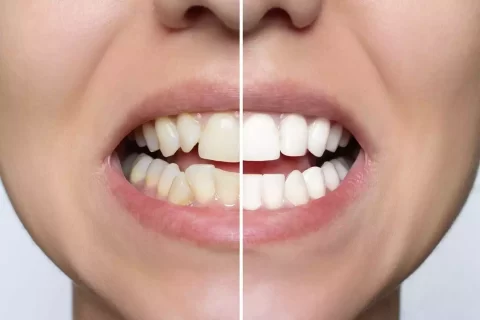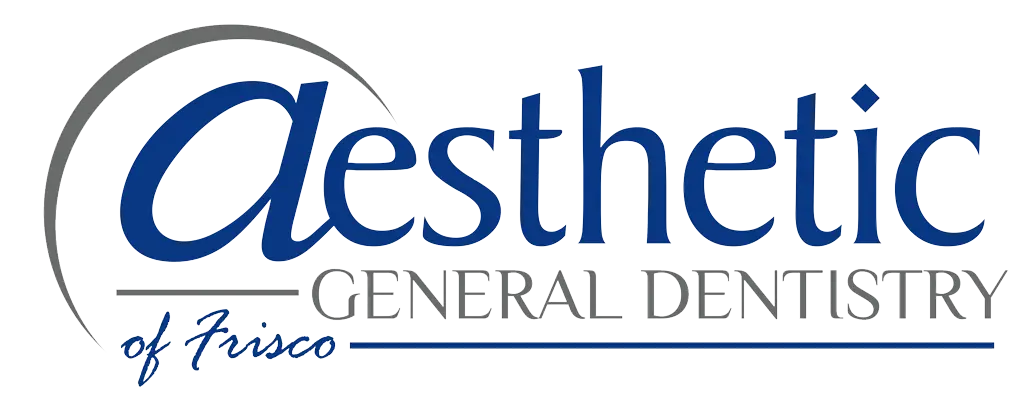Crooked Teeth
Frisco TX
Crooked teeth, which is a common dental concern, can be caused by a variety of factors. Genetic predisposition actually has a pretty big impact on the size of our jaw and teeth. If one of them is not in the right proportion, it can cause problems with crowding or spacing.

There are a few factors that can contribute to crooked teeth, such as the following:
Prolonged Habits
- Thumb Sucking: Persistent thumb sucking beyond infancy can impact the positioning of teeth and contribute to premature loss.
- Extended Pacifier Use: Continuing pacifier use beyond the age of three may affect the natural alignment of baby teeth.
Dental Restorations
- Improper Fit: Inadequately fitted dental restorations, such as crowns or fillings, can lead to complications, including premature loss of baby teeth.
Health Conditions
- Jaw Misalignment: Certain health conditions can affect the alignment of the jaw, influencing the positioning of teeth. Conditions like temporomandibular joint (TMJ) disorders or congenital anomalies may contribute to dental issues.
Injuries
- Trauma: Injuries to the face or jaw can disrupt the natural alignment of teeth, potentially leading to crooked teeth or premature loss.
Understanding these factors is crucial for promoting proper oral health in children and addressing issues promptly to prevent long-term consequences. Regular dental check-ups and early intervention can play a significant role in mitigating these risks and ensuring the healthy development of a child’s dentition.
The Impact of Crooked Teeth on Oral Health
Crooked teeth not only affect how we look, but they can also have a significant impact on our oral health. Misaligned teeth can pose challenges in adequately cleaning specific areas, consequently increasing the risk of cavities and gum disease.
In addition, these aligners can potentially result in teeth wearing unevenly, which may lead to challenges while chewing, discomfort in the jaw, and occasionally even TMJ disorders. In addition, it’s worth noting that crooked teeth can actually put strain on the muscles in your jaw, which can result in chronic headaches and neck pain.
Orthodontic Solutions for Crooked Teeth: Braces, Aligners, and More
Orthodontic procedures are often the preferred choice for addressing crooked teeth. In cases of significant misalignment, traditional metal braces serve as an excellent solution. These braces utilize brackets and wires to gradually and gently reposition your teeth, ultimately aligning them correctly.
Ceramic braces are a great option if you’re looking for a less noticeable alternative. Clear aligners, such as Invisalign, are quite popular for addressing mild to moderate dental issues.
People tend to prefer them because they are discreet in appearance and offer a high level of convenience. Sometimes, retainers or dental surgery may be necessary, especially if you have significant jaw misalignments.
How to Prevent Crooked Teeth: Tips for Better Dental Health
A radiant smile is a valuable asset, and its maintenance hinges on optimal dental health. A prevalent worry for many is the emergence of misaligned teeth, impacting not just aesthetics but also giving rise to a range of oral health complications.
Early Intervention Matters
- Regular Dental Check-ups: Schedule routine check-ups for your child with a pediatric dentist to monitor their dental development.
- Orthodontic Assessment: Consider early orthodontic assessments to identify and address potential issues before they become more complex.
Healthy Habits for Children
- Discourage Thumb Sucking: Prolonged thumb sucking can impact tooth alignment. Encourage your child to break the habit early on.
- Limit Pacifier Use: Gradually reduce and eliminate pacifier use after the age of three to prevent potential dental problems.
Proper Oral Hygiene
- Regular Brushing and Flossing: Establish a consistent oral hygiene routine to prevent tooth decay and gum disease, which can contribute to misalignment.
- Use of Fluoride: Incorporate fluoride toothpaste and dental products to strengthen teeth and maintain their proper alignment.
Nutrition for Dental Health
- Balanced Diet: Provide a diet rich in calcium, vitamin D, and phosphorus to support healthy tooth development.
- Limit Sugary Snacks: Reduce the intake of sugary snacks and beverages, as they can contribute to tooth decay and potential misalignment.
Addressing Injuries Promptly
- Immediate Care: If a facial or jaw injury occurs, seek prompt dental care to assess and address any potential impact on tooth alignment.
Orthodontic Consultation for Teens and Adults
- Consult an Orthodontist: If you notice any signs of misalignment or have concerns about your smile, schedule an orthodontic consultation for personalized advice.
Regular Dental Check-ups for All Ages
- Lifelong Dental Care: Maintain regular dental check-ups throughout life to monitor oral health and address any emerging issues promptly.
Preventing crooked teeth involves a combination of proactive measures, healthy habits, and timely interventions. By incorporating these tips into your daily routine and seeking professional guidance when needed, you can contribute to better dental health and enjoy the confidence that comes with a straight and radiant smile. Remember, a little care today can lead to a lifetime of beautiful smiles tomorrow.
Exploring the Connection between Crooked Teeth and Overall Health
Did you know that crooked teeth can affect more than just your oral health? It turns out that they can also have an impact on your overall health. It’s pretty interesting because gum disease has been found to be connected to other systemic conditions like heart disease and diabetes.
Misalignment has the potential to cause chronic pain and stress, which can in turn have an impact on one’s mental health. Furthermore, if someone avoids certain foods due to difficulty in chewing, it can potentially result in nutritional deficiencies. Taking care of crooked teeth can actually have a great impact on your overall well-being.
Frequently Asked Questions -
Crooked Teeth
At Aesthetic General Dentistry of Frisco, we’re always here to clarify and guide. Never hesitate to ask; your oral health is our top priority!
At what age should orthodontic treatment for crooked teeth begin?
Orthodontic treatment can start as early as age 7, as recommended by the American Association of Orthodontists. Early evaluation allows for timely intervention if needed.
Are braces the only option for correcting crooked teeth?
No, braces are one of several options. Clear aligners, retainers, and in some cases, dental surgery can also correct crooked teeth.
How long does orthodontic treatment typically last?
The duration varies depending on the severity of the misalignment and the treatment method. On average, it can range from 18 months to 3 years.
Can crooked teeth get worse over time if not treated?
Yes, without treatment, crooked teeth can worsen. This can lead to increased oral health problems and potentially more complex treatments later on.
Is orthodontic treatment painful?
Some discomfort is common after adjustments to braces or aligners, but it’s usually manageable with over-the-counter pain relief and subsides in a few days.
Crooked teeth can cause embarrassing and dangerous health risks. Prevention techniques such as routine dental care, avoiding prolonged thumb-sucking habits, and visiting an orthodontist earlier in life can help to ensure straight teeth that look great and are healthy too! At Aesthetic General Dentistry, our experienced professionals understand the importance of having a beautiful smile, and will work with you to determine the most effective solution for your specific needs. Don’t wait any longer–contact us today to make sure your oral hygiene is taken care of!
